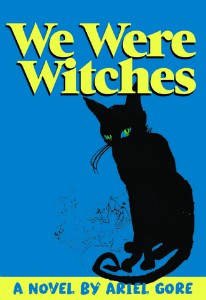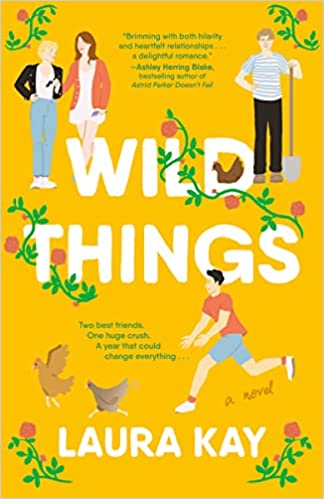TW: self harm, violence against women, sexual assault
‘Beautiful’ does not even begin to encompass the captive, rhythmic style Ariel Gore possesses. I found it difficult to read quickly despite it being a relatively short work; every few pages there would be a line simple in structure but devastating in truth. I would be left raw, and was often forced to take a few minutes of sitting quietly before I could pick it up again. Reading this book was not always comfortable, but it was always very real. Her revelations discomfit, the view of an unkind world is gutting, and I am so glad to have found and read it. This will not be the last time.
It begins with Ariel at age 19, delivering Maia in a hospital in Italy. The following chapters delve into her confusion and uncertainty as she returns home for the first time in a long time, and she slowly finds her footing in a world that is not good to her. It becomes an anthem for all that is endured silently for the betterment of privileged fragile men. Reading this book, I was angry, and I was heartbroken.
Poor little male violence
You can climb my hair.
The book is made of rage. And writing when you have rage is important (as is reading about rage when it’s so similar to your own) because more often than not, that rage is turned inward. Because suffering as one’s own island is what women have been groomed to do. There are endless layers and contrasts to Ariel’s explorations as she grows from teen to young adult, and she pulls no punches in her descriptions of suffering (and betrayal after betrayal). Nothing is easy. There is prejudice and rigidity even in the broader spaces in which she tries to make a home.
Ariel goes to college, baby in tow. She studies the witch trials extensively. Outlines the trends in accusing poor, unmarried women of witchcraft and executing them. Paints a picture of women who mattered so little, the only way to find their stories is by the court records of their trials.
Very few people in power really care about other people’s sexuality. They care about money. But shaming sexuality is easier because that realm is so vulnerable. And of course if you control sexuality, that’s power that can be transmuted into more money.… my public shaming is not merely designed for my own benefit, but rather serves as a sermon and a warning to other girls and other women who may hope to escape the confines of a system designed to support and enable the white-supremacist capitalist war machine.
Different is dangerous. Different needs to be leashed.
College teaches Ariel lessons in taking up space. She makes a few key friends. Finds some cute girls to make out with. Her Women’s Studies professor encourages her to explore feminism, and Ariel’s automatic rejection is, ‘feminists just get abortions’. I was taken aback, but equally appreciative of Gore’s ability to be honest about her growth. Because we aren’t born good feminists, and it is hard to accept a label often thrown like an accusation when you are too young to know it should be worn like a badge of honour.
She gains confidence in her desire to be a writer because here, at this women’s college, people do not laugh at her dreams. But she also learns that the people in her new home carry their own flaws. Her intro to (White Girl) Feminism gives her creative freedom and embraces her talent, but it does not account for poverty. It advocates for queer rights, but does not care for butch representation. Ariel’s employer stages a gay wedding between two femme white girls (one hetero, the other with no interest in marriage) – rejecting a butch couple actually looking to get married – because the butch couple are too gay for the kind of press this ‘feminist magazine’ is hoping to garner.
Ariel learns that feminists can be terrible too, when they are not willing to change. When their idea of Feminism is the only Feminism.
Also, honourable mention goes to Ariel’s crush on her Women’s Studies professor. Been there, Girl.
We Were Witches reads like a novel and you want it to be a novel, because in a novel, when the writing is this good, the ending always satisfies. But when my Kindle told me I was 70% through and things were still getting worse, I wanted to cry.
Ariel gives birth to a daughter, and the doctor mutilates her without thought.
The only alive the doctor knows is crying.
She goes home to a mother who will not let her forget the ‘shame’ of being a teenage mother. She takes Maia and branches out on her own and tries to finish college, only she needs welfare assistance to do so. And the woman she tries to befriend throws her to the wolves (the wolf being the woman’s asshole husband who shouts welfare/single mother-shaming abuses at Ariel, then escalates to threats, prompting her to pack her things and leave the city). She moves to a new college. A queer friendly, women’s college.
It does not get better.
Her ex-boyfriend punches through the glass window in her door to break inside. She phones the police. The police show up and Lance charms them, painting Ariel as hysterical. She tries to file a restraining order. But ‘children need their fathers’ and suddenly the choices are share custody with Lance, or have Maia taken away.
As the book progresses, a very clear picture begins to take shape. Here, we explore the pieces:
The police refusing to believe Ariel and Lance aren’t married. Refusing to believe that Lance broke down the door and was ready to hurt her.
Passing as straight for the courts because queer mothers have their children taken away from them.
Ariel’s friend raped – at 14, by a police officer – and told her rapist has visitation rights.
A childhood friend of Ariel’s, raped during her first year of college: her push against the college for laws of consent to be clear and mandatory are made into jokes on the radio.
The witch trials have not ended. And this is as bleak a reality as it is an important one to remember. Fighting when you’re tired, when you’re exhausted – because you’re fighting your fight and the fight of queer/poor/unmarried/underrepresented people before you, even preceding the witch trials, and you were brought into this world fighting – is important. The alternative is death. This book is about intersectional feminism, motherhood, male privilege, violence, the burden of emotional labour, and the one hundred other aggressions dealt with daily to varying degrees by anyone who is not a cis-white male. Everyone needs it.
One final note, and then I promise I will stop hyping it up. I’m a sucker for reimagined fairy tales; there are some brief retellings throughout the book, but the Rapunzel retelling wrecked me. I won’t spoil it, but it wrecked me. Do not read this book until you are in a place where you are okay feeling every feeling. But please read this book.




Sarah Neilson says
This is such a great review! Couldn’t agree more. This book wrecked me in the best way. Thanks for sharing!